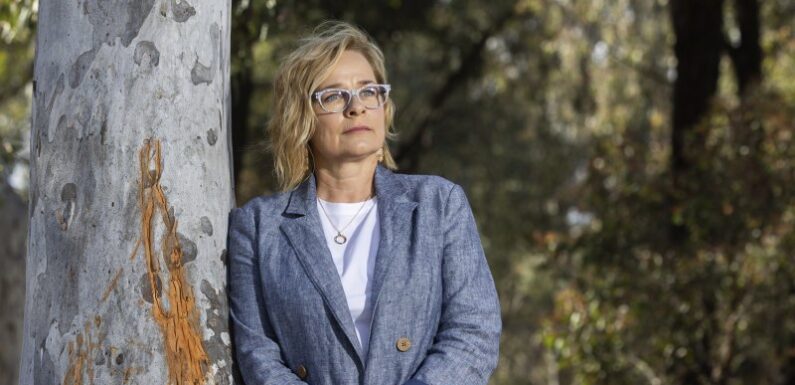
Save articles for later
Add articles to your saved list and come back to them any time.
Chemotherapy. Radiotherapy. Surgery. These are the cancer treatments most people are familiar with. But advocates, patients and oncologists say there is another key, cancer-busting tool that is too often being overlooked: genomic profiling.
Rare Cancers Australia, a charity that focuses on lesser diagnosed cancers, which account for about 40 per cent of Australia’s cancer deaths, says some patients are missing out on life-saving medicines because they are not getting timely access to genomic profiling of their cancer.
Alison Bolton has had her life extended by specialised cancer treatment.Credit: Alex Ellinghausen
Many cancers have genetic subtypes, which may benefit from specialist drugs.
Christine Cockburn, general manager of Rare Cancers Australia, said some cancer patients were not receiving genomic profiling at all, or only after they had received potentially unnecessary chemotherapy or radiotherapy, and their disease had progressed.
“It seems crazy not to pull it right back to the beginning [and say]: ‘Let’s find out what’s making the cancer tick and target that’.”
Alison Bolton, a clinical trial nurse, was diagnosed with stage-three lung cancer in 2017 at the age of 47. She was initially prescribed a traditional treatment of chemotherapy and radiotherapy, which left her with ongoing side effects including trouble breathing, swallowing and a burn in her oesophagus.
Alison Bolton being treated for cancer.
Soon after, the cancer spread to her brain.
It wasn’t until the mother-of-four asked her doctor if it was possible that she might have a particular subset of lung cancer, that it was discovered through testing that she did have non-small cell ALK-positive lung cancer, which can appear in younger patients without a smoking history.
Bolton was then able to access targeted cancer therapy, in pill form, first using money her friends had crowdfunded and then through the government after the therapy was added to the Pharmaceutical Benefits Scheme (PBS).
“Within weeks, it [the treatment] had actually decreased the brain mass so much, my doctor told me they [the cancer cells] had disappeared on the MRI,” she said. “I felt so blessed to be able to take that medication.”
On Tuesday, Rare Cancers Australia released a new report calling for Australian patients to be routinely offered genomic profiling as part of standard cancer care.
“Over the last five or 10 years, the cost of the testing itself has fallen from $10,000 or so down to hundreds [of dollars]… There are great savings to be had by treating people effectively and efficiently … and getting people back into life and getting on their merry way, rather than having line after line after line of ineffective treatments.”
Professor John Zalcberg, a Melbourne oncologist, said there was still inequality in who accessed some of the more advanced cancer tests and treatment.
“For the average Australian, a lot of these tests are expensive, and the drugs are prohibitively out-of-reach. We’ve got to level the playing field, and the way to do that is to make these generally available.”
“It’s going in the right direction, but… the opportunities are in front of us to really change the needle here.”
After the initial success of the targeted drug treatment, the cancer in Alison Bolton’s brain came back in 2019, 2021 and 2022. She wonders what would have happened, if her cancer type had been identified sooner, allowing her to skip chemotherapy and radiotherapy for her specialised medicine.
A spokeswoman for Health Minister Mark Butler said Medicare funded a range of genetic tests for many cancer patients, at their doctor’s request, and the government recognised genomic health technologies were reshaping clinic practice.
She said careful consideration, planning and implementation were required to integrate new genomic technologies into the healthcare system, a task she said was being addressed by the Health Technology and Genomics Collaboration, established by the federal and state governments in April.
In an exclusive offer for subscribers, order a copy of Life As We Knew It: the extraordinary story of Australia’s pandemic by Aisha Dow and Melissa Cunningham from Scribe for 30 per cent off the retail price. Click here for details. This offer is available until October 31.
Most Viewed in National
From our partners
Source: Read Full Article

